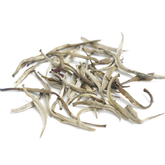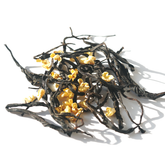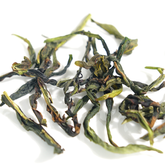Does Drinking Green Tea Or Black Tea Cause Kidney Stones?
Kidney stones are the most common urinary system illness, with a morbidity rate of about 10%. Office workers belong to the high-risk groups due to high work pressure, improper hydration, holding urine for too long, skipping breakfast, high-fat food, and lack of exercise.
Generally, patients do not have any obvious symptoms. In the case of acute attacks, however, kidney stones may cause sharp lower back pain. Severe pain becomes intolerable; it is accompanied by cold sweat and pale complexion. If left untreated, kidney stones can further lead to infection in the urinary tract or even kidney failure. Young and middle-aged people are predominantly affected, with men being more susceptible than women, in a ratio of approximately 2-3:1. Prevalence is higher in regions with a highly developed economy that practice high-protein diets and among obese individuals or those working in high-temperature environments.
Common Causes of Kidney Stones
Kidney stones can be classified according to composition: calcium oxalate stones, urate stones, and phosphate stones, among others. The majority are made of calcium oxalate (71%-84%). Calcium oxalate stones are hard in texture, irregular in shape, and rough in texture that may injure the urinary tract and thus give rise to blood in the urine. Here are some common causes of calcium oxalate and urate stones:
- Excessive oxalate intake: Consumption of high amounts of foods containing oxalate-for example, spinach, beetroot, chocolate, and nuts-or animal protein and salt can increase the blood and urinary levels of oxalate.
- Overuse of vitamin C: Vitamin C or ascorbic acid can be converted into oxalate, thus increasing urinary oxalate levels.
- Chronic intestinal infections: Chronic disorders like colitis increase the absorption of oxalate, causing increased levels of blood and urine oxalate.
- Long-term abuse of antibiotics: Antibiotics reduce oxalobacter formigenes, the gut bacteria that degrade oxalate, thereby increasing its absorption.
- Low calcium diets: In the gut, adequate calcium intake complexes with oxalate, preventing its absorption. Low calcium may increase oxalate absorption.
- Recurrent urinary infections: Inflammatory products from infection may complex with calcium, promoting the formation of stones.
- Urinary tract obstruction: Obstruction to urine flow concentrates calcium and oxalate, promoting the formation of stones.
- High purine diet: The consumption of organ meats, alcohol, or sweetened beverages increases uric acid levels, thus increasing the risk for urate stones.
- Medication effects: Some medications, like the use of benzbromarone to decrease uric acid levels, can increase the risk for urate stones.
- Dehydration: Inadequate fluid intake or heavy sweating lessens the amount of urine produced. As a result, stone-producing substances become more concentrated in the urine. Poor hydration is a major but often unrecognized risk factor for kidney stones.
Does Drinking Tea Cause Kidney Stones?
Some tea enthusiasts who have had kidney stones may wonder if drinking tea exacerbates or triggers this condition. As a tea chemistry researcher, I can confidently say that drinking tea does not cause kidney stones. On the contrary, green tea may lower the risk of stone formation through its diuretic and antioxidant properties.
Although tea does contain oxalates, the amount is much less than in high-oxalate foods such as spinach. The usual consumption of tea provides very minimal oxalate intake, thus having a negligible effect on stone risk. Chinese teas also has a moderate amount of caffeine, which induces diuresis, thereby facilitating urine excretion and diluting the urine to reduce the risk of kidney stones. White teas is also heavily loaded with polyphenolic compounds, like catechins, which may help in protecting the kidneys and hindering stone development.
Conclusion
Drinking tea does not cause kidney stones, either green tea or black tea. Its oxalate content is very low and negligible. Small stones that have not yet obstructed the urinary pathway can be flushed out by physical means like increased intake of water and exercise. Of all the non-surgical methods, plenty of water intake is the best way to pass small stones. Since tea is natural and flavorful, it provides an excellent means of hydration-much more appealing than plain water.
SEE MORE ABOUT CHINESE TEAS
If you have questions about selecting tea:
Learn-more-about-chinese-tea
If you have questions about the benefits of tea:
Health-benefits-of-chinese-tea
If you have questions about brewing tea:
How-to-brew-loose-leaf-tea






